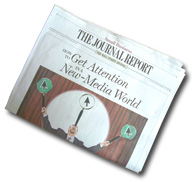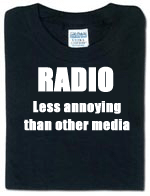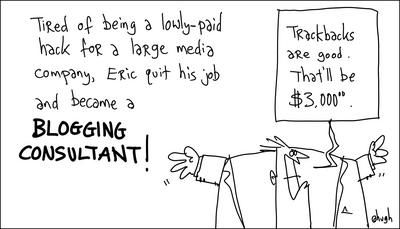 That’s the headline on a story in today’s Wall Street Journal. I won’t bother posting any of the many nuggets in this piece. You can read them yourself. And if you spend anytime online, you know a lot of this already.
That’s the headline on a story in today’s Wall Street Journal. I won’t bother posting any of the many nuggets in this piece. You can read them yourself. And if you spend anytime online, you know a lot of this already.
Here’s what I want to know: How can any intelligent, semi-educated, reasonably well informed, man or woman entrusted with running a business (or some division or department of that business) not have at least heard about the things referenced in this story (blogs, podcasts, RSS, etc etc)?
We talk to people every day that insist (and I belive them) they’ve never even heard the terms. I don’t expect the average Joe (or Joanne) to be as into this “new media” (someday we won’t need the quotation marks) as I am… and I know that not everyone has access to the Internet. But if you own a TV set, a radio, read a newspaper or a magazine… how could you not have seen or heard one or two of the countless stories about “new media” during the last couple of years?
* I just read the local sports scores in The Daily Bugle
* I only watch Wheel of Fortune and QVC on TV
* I haven’t seen anything in People Magazine about all this stuff
* Cousin Bob on Country 108.7 would tell me if any of this stuff was important
What do you know? I answered my own question.
Let me stress that I’m not saying your business should be using any of the new media tools (you should)… but I remain mystified that there are people who have not a glimmer that something is happening.

 “Fifty-five percent of respondents said radio was the medium most likely to improve their mood compared to the other three media studied. The findings were generally true across all ages, genders, and ethnic groups, but especially strong for African-Americans and Hispanics.”
“Fifty-five percent of respondents said radio was the medium most likely to improve their mood compared to the other three media studied. The findings were generally true across all ages, genders, and ethnic groups, but especially strong for African-Americans and Hispanics.”
 That’s the headline on a
That’s the headline on a 